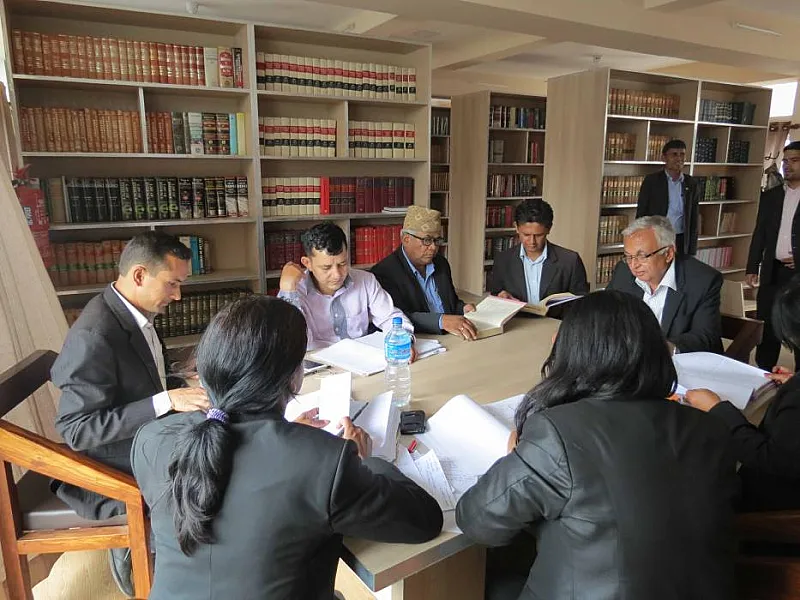
Advocates in Nepal, like in many other countries, are legal professionals who represent clients in various legal matters. They can work in both the public and private sectors, engaging in litigation, legal consulting, and other legal services. Here is an overview of the roles and responsibilities of advocates in Nepal:
Litigation: Advocates in Nepal represent their clients in court, presenting their cases, making legal arguments, and defending their rights. They can work in civil, criminal, or administrative matters, and they are responsible for preparing and presenting evidence, cross-examining witnesses, and providing legal counsel to their clients.
Legal Consultation: Advocates provide legal advice and consultation to their clients. This may involve explaining the legal implications of various actions, drafting legal documents, and helping clients navigate complex legal issues.
Drafting Legal Documents: Advocates in Nepal draft various legal documents, including contracts, agreements, wills, and legal notices. They ensure that these documents adhere to the country's legal requirements and standards.
Alternative Dispute Resolution (ADR): Some advocates may also engage in alternative dispute resolution methods, such as mediation and arbitration, to help clients resolve legal disputes outside of the formal court system.
Research and Legal Analysis: Advocates conduct legal research to stay informed about changes in the law, precedent-setting cases, and legal developments. This research helps them provide well-informed legal advice to their clients.
Client Representation: Advocates act as their clients' representatives in legal proceedings. They must maintain the confidentiality of their clients' information and advocate for their best interests within the bounds of the law.
Advocacy for Legal Reforms: Some advocates may be involved in advocating for legal reforms or improvements in the legal system. They may work with non-governmental organizations (NGOs) or participate in policy and legal advocacy to address social or legal issues.
Professional Ethics: Advocates in Nepal are bound by professional codes of ethics and conduct. They must uphold the principles of integrity, confidentiality, and loyalty to their clients while ensuring their actions are within the bounds of the law.
Continuing Legal Education: Like in many other countries, advocates in Nepal are required to engage in continuing legal education to stay updated with the latest legal developments and maintain their professional competence.
Bar Association Membership: Advocates typically belong to the Nepal Bar Association, a professional organization that regulates and supports the legal profession in the country.
It's important to note that the legal profession in Nepal, as in many other countries, is highly regulated. To practice law as an advocate, individuals must meet specific educational and licensing requirements. They typically must hold a law degree, complete a period of practical training, and pass a licensing examination.
Advocates play a crucial role in upholding the rule of law, protecting individuals' rights, and ensuring that the legal system functions effectively in Nepal
Comments: